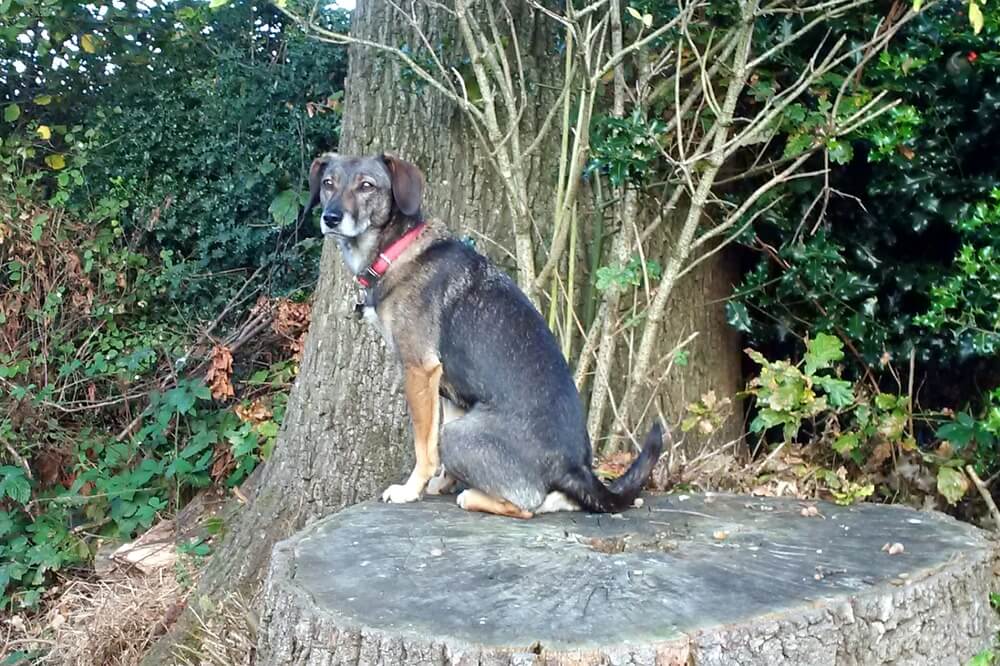Happy New Year Maizi-ites!
Here’s an article that my human Steve posted on LinkedIn Pulse last year that I wanted to share with you. It’s all about preparing properly for whatever it is you’re about to do, in this case, training sessions. Before you start reading his article take a look at my pic (above) and you’ll see how I prepare to catch squirrels…
Think of some of the great comedians – Eric Morecambe, John Cleese (Basil Fawlty), David Jason (Del Boy), Ronnie Barker – what do they, or their alter-egos, have in common? Timing. Knowing exactly the right moment to deliver the punch line.
That’s why we remember them, because they absolutely nailed it and delivered at the critical moment. And how did they manage this? Because they rehearsed, rehearsed and rehearsed all those ‘spontaneous’ moments. In other words, they prepared to be funny.

Remember this famous ‘Del Boy falls through the bar scene’? Bet David Jason didn’t get this right on the first take…
It’s exactly the same with coaching. You need to prepare and prepare your staff so they are in the right frame of mind to listen and learn.
Jeff Toister, the author of a Quality Digest article, carried out some straw polls at free training sessions he runs for not-for-profits asking participants why they attended his course. The most common responses were:
- ‘I was told to be there’
- ‘The session looked interesting’
- ‘The course counts towards my Continuous Professional Development (CPD)’
As a coach, getting feedback like that before you’ve even started, makes the heart sink. The rest of the day could be a slog as there’s a good chance your participants are not fully engaged.
Jack Zenger, Joe Folkman, and Robert Sherwin in a 2005 edition of TD magazine estimated that preparation is 26 percent of learning, the event itself only 24 percent, while 50% of learning came from follow up.
So preparation is more important than the event itself! However, the authors also estimated that typically time spent on prep is just 10 percent.
It was looking at stats like these led to the Alisar approach. As a general rule, this is the outline of one of our coaching programmes:
Step 1: Distribute an anonymous online questionnaire to the programme participants
Step 2: Analyse the results, produce and deliver a bespoke event or series of events targeting the focus areas
Step 3: Follow up with individual participant sessions concentrating on their personal areas for development
Step 4: Re-issue the online questionnaire to measure the success of the programme and identify any further areas for development
Questions are agreed beforehand and we generally don’t ask more than 20. Usually the results reveal that approximately 75% of the processes in place are functioning at an acceptable level, so we focus on the remaining 25%. There’s no point running any sort of training or coaching sessions for something that everyone thinks is working well!
This technique was particularly effective when we started working with one customer who told us they wanted sales training.
When we broke down the results of our survey it was clear they needed improved Communication Skills (their sales skills were awesome) and to tackle a silo mentality that had resulted in poor dialogue between divisions.
So we were able to deliver specific, targeted coaching on areas that the staff themselves had identified as needing attention – so we had their buy in from the start. A result for us and for them.
Our preparation ensured a cost-effective approach – as we only concentrated on the areas that needed it and engaging training for the staff – because they’d asked for it in their answers to the survey – that truly hit the nail on the head – because it included the all-important follow up. “Mange tout!” As Del Boy would say…
So when you next think about organising training or coaching ask yourself – have you done the prep?

